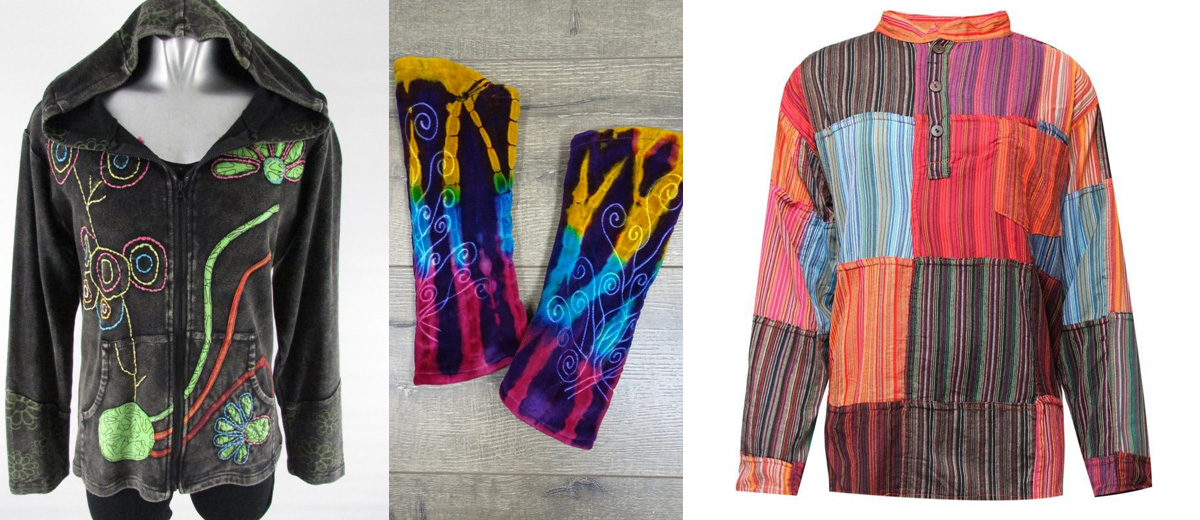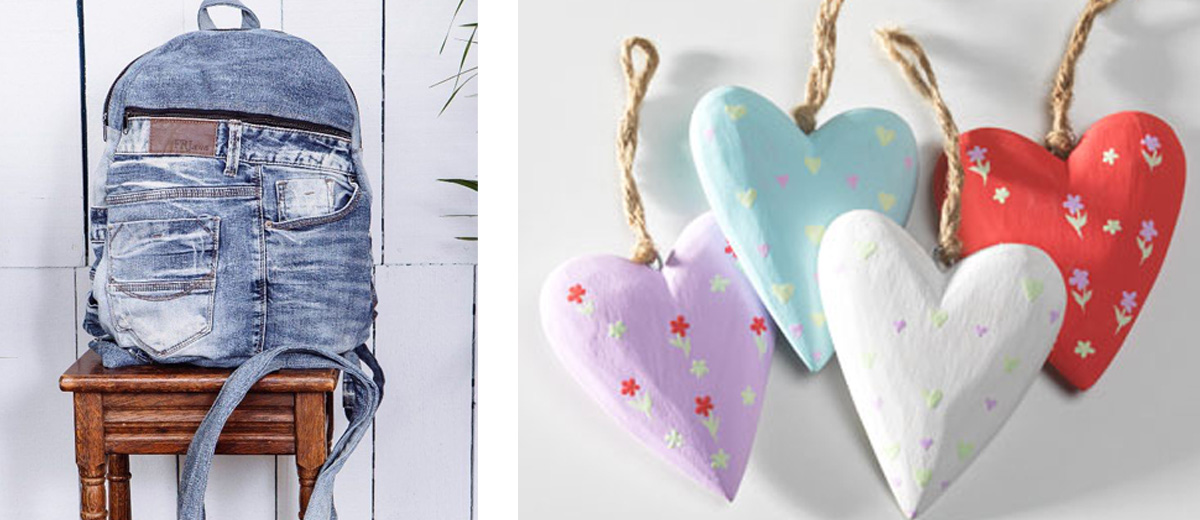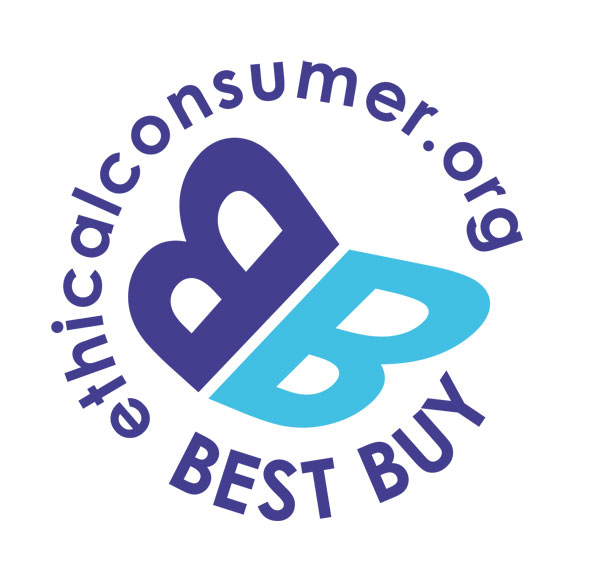![]() 100% Vegan
100% Vegan
![]() Established in 1993
Established in 1993
![]() Delivery Worldwide
Delivery Worldwide
![]() Peta Approved Vegan
Peta Approved Vegan
Recent Posts
- Buckland Boots being put to the test
- 30 Years
- Here’s a welcome headline on the BBC Sports pages;
- Helping Tibetan refugees build a bright future
- Helping Foxes in the South East of England
- The latest news from ethicalWARES
- Street Dog Care - £400 payment made
- OurLizzy
- ethicalWARES' Guide To Recycling & Upcycling
- Vegan design: 4 tips for transitioning to cruelty-free furniture in your home
Fairtrade Products: What Are They & Why Should I Buy Them?

There’s no doubt you will have seen this infamous logo printed on the side of much Fairtrade food or Fairtrade clothing products in your favourite retail stores.
Whilst we all recognise the Fairtrade logo as a symbol for an ethical good, do we really know what it means?
Fairtrade sets strict working standards and agreements that help to ensure farmers and workers get a fair price for their work and produce. By doing this they help to empower some of the most vulnerable people on the planet, uplifting entire communities and improving their everyday lives.
So, next time you pick up a Fairtrade product just remember that you are helping hundreds of hardworking people to live better lives.
Here is everything that the Fairtrade logo stands for and why it’s so important.
The History of Fairtrade and Their Mission
The Fairtrade Foundation was launched in 1992 by CAFDO, Christian Aid, Oxfam, Traidcraft, Global Justice Now, and the National Federation of Women’s Institutes.
Today, there are many more member organisations from all around the world who support The Fairtrade Foundation.
The Foundation is the UK member of Fairtrade International which encompasses over 20 labelling initiatives throughout the world, all dedicated to giving the people who produce our favourite goods a fair deal.
In their latest strategy ‘Fairtrade I Can, I Can’, the organization set out their vision to:
● Increase their impact on the most vulnerable farmers and workers across the world.
● Connect the UK public with those workers and farmers.
● Improve and innovate their standards so that they can help even more people.
●
Build an even stronger organisation.
Fairtrade is on a mission to ensure that all farmers, workers, companies, consumers and campaigners get a fair deal.
Their current focus is specifically on coffee, cocoa, banana, tea and flower farmers.

What Does Fairtrade Actually Do?
Fairtrade works tirelessly with companies, consumers and campaigners all over the world to help create a better deal for farmers and workers who help to produce the things we love.
They are on a mission to give farmers and labourers a fair price for their hard work and ensure that they have safe and legal working conditions.
By connecting farmers and labourers to the consumer, they hope to promote fairer trading conditions and empower those people.
Fairtrade accomplishes this by setting social, economic and environmental standards that benefit all parties involved - from the farmers, to the workers, to the businesses, to the consumers.
These include worker protection rights, environmental rights and the Fairtrade Minimum Price which ensures everyone gets a fair wage for their work.
All their standards are independently assessed and reviewed to ensure best practices are always maintained.
Fairtrade Facts & Figures
● In 2017, Fairtrade paid over €188.8m in Fairtrade Premium to producers.
● On average, each Fairtrade producer organisation received more than €118,000.
● Workers on Fairtrade certified plantations invested 50% of their Fairtrade Premium into education and housing services.
●
Small producer organisations invested 50% into farming including agricultural tools and inputs.
Why Do We Need Fairtrade?
In our modern world of fast and excessive consumerism, we have created a system which negatively affects the people at the bottom of the supply chain.
People that live in some of the poorest communities in the world are not getting a fair deal when it comes to the purchase of their labour and/or goods.
Many farmers and labourers who produce goods such as cotton, linen, cocoa and coffee are squeezed by large corporations who want to drive down the cost of their goods for consumers in the developed world.
This demand for fast, convenient and low-cost goods creates a poor and unfair working environment for millions of people in foreign countries.
Many of these people work incredibly hard, for long hours every single day, for a tiny wage. Their working conditions are often sub-standard with frequent accidents and health-related issues being reported.
Slave and child labour are also huge issues within our current consumer system. Companies that have become successful on the back of extremely cheap consumer goods such as Nestle, H&M, Phillip Morris, Sports Direct and New Look still use child labour even today.
Children as young as 14 can work up to 12 hours a day in countries like China, India, Myanmar and Pakistan making consumer goods for some of the top high street stores.
These companies are complicit in crimes against humanity and need to be held accountable.
When you buy Fairtrade products you can be assured that the goods you are buying are not the product of human exploitation or human rights violations.
Fairtrade ensures that what you buy is the product of a decent working system in which all parties receive a fair deal.

The Impact of Fairtrade
The strict Fairtrade standards put in place help to empower farmers and workers all over the world. They don’t just improve people’s working conditions and environment, they uplift entire communities.
This allows those communities to sustain a more prosperous life, allowing them to regain control over their own lives, feed their families, educate their children and live a more fulfilled life.
The impact of Fairtrade standards is not just measured in monetary gains but by the improvement to people’s standard of living also.
Fairtrade’s commitment to continuously evaluate and learn about its own impact allows them to further improve their operations - which helps them to help more people.
The Fairtrade Minimum Price allows farmers to become income-secure and less vulnerable to poverty.
Fairtrade empowers entire communities to uplift themselves out of destitution and helps them to organise into cooperatives. This allows them to improve their negotiating position within the supply chain.
The Fairtrade standards incentivise farmers to farm better, reduce carbon emissions, improve soil health, protect biodiversity and move away from harmful pesticides and chemicals.
Fairtrade standards also help vulnerable farmers and workers to understand their rights, improve their negotiations, protect their lands and help them to invest their profits into housing, education, medical facilities and sanitation.
Why Should I Buy Fairtrade Products?
We should all buy Fairtrade products because everyone deserves a fair deal in life, from the farmer to the consumer.
As conscious human beings, we should help to uplift the people that work so incredibly hard to provide us with the goods we know and love.
When you buy Fairtrade products you are voting for a fairer, more equal, sustainable and brighter world.
Together, we can make the world a better place, we just have to make the conscious choice to do so!
This can be as simple as buying products that use the Fairtrade logo.
How Do I Get Involved?
Here are some simple ways you can support Fairtrade on their mission right now:
●
Make a donation.
●
Create a fundraiser.
●
Join one of their current campaigns.
● Join them at the upcoming Fairtrade Fortnight 2020 taking place 24 February - 8 March.
● Browse our online Fairtrade store for many great ethical products.

